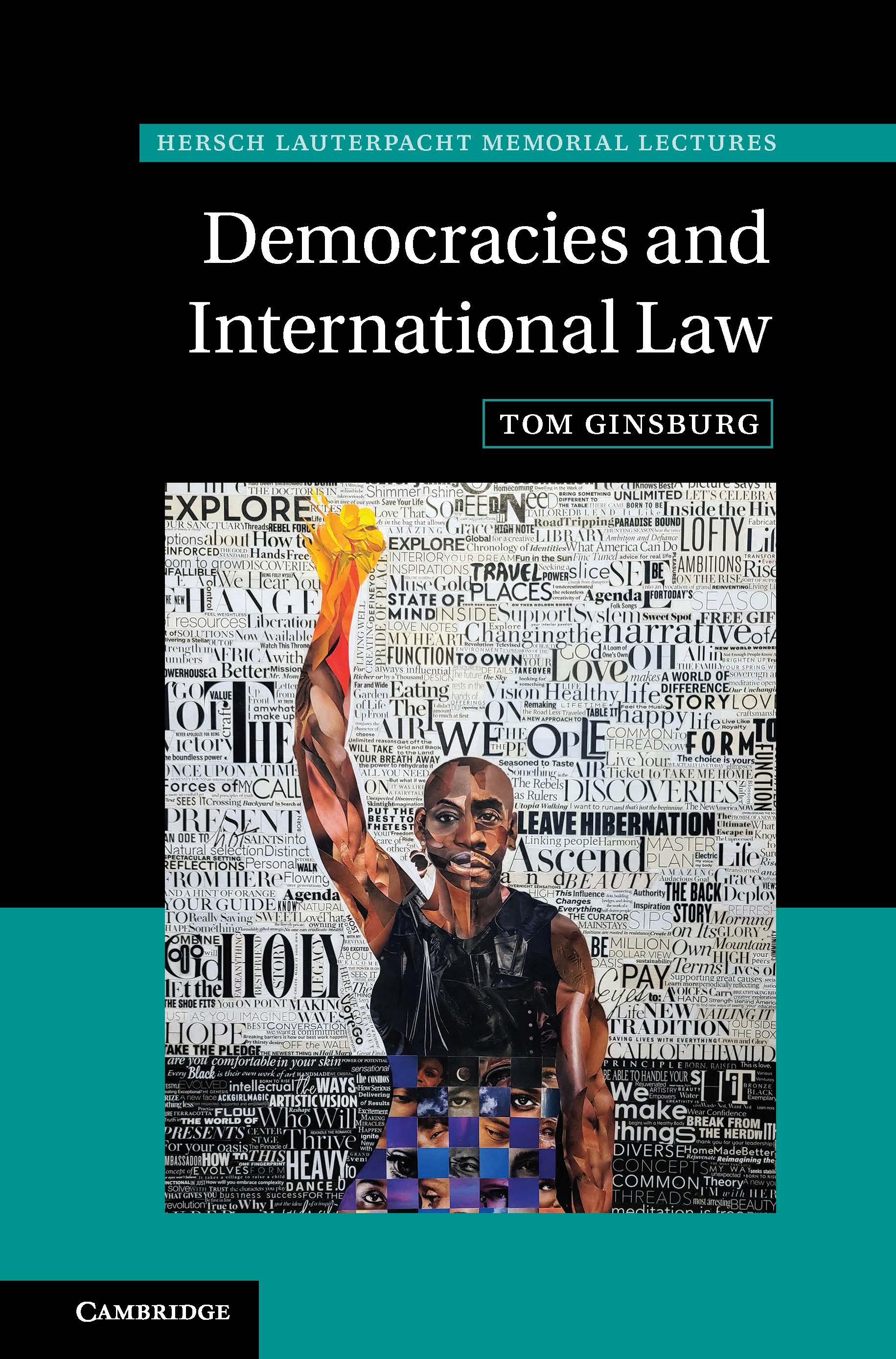


Vladimir Putin’s claims of genocide in Ukraine were more than a fictional basis to rally domestic support for an invasion, according to University of Chicago Professor Tom GinsburgThey were an example of a growing trend Ginsburg has termed “authoritarian international law.” We spoke with Ginsburg, the co-chair of the World Justice Project’s research consortium and the author of the 2021 book Democracies and International Law, about Putin’s motivations and how authoritarians are co-opting the language of human rights and the rule of law to justify terrible ends. We also asked him for signs of hope in countering authoritarianism, even as the latest WJP Rule of Law Index found it to be rising in more than 70% of countries studied.
WJP: Let’s start with the big question, what do you think has motivated Putin to invade Ukraine?
Ginsburg: Well, it's pretty clearly been a dream he's had for some time to reverse what he sees as a historic weakening of the Russian state and the sacrifice of the empire. His biographies it make clear that this is something he's been focused on for a long time. It's also the case that Russia has genuine security interests in its neighborhood. And in many ways, the EU and NATO expanding ever closer to his borders over the last decades did provoke a reaction. For instance, as I discuss in my book, Putin set up an alternative, international organization, the Eurasian Economic Union, which was seen as being a counterweight to the European Union, and it very much copies the EU institutional infrastructure. He’s also been trying to play a more muscular foreign policy. So I think the motives are pretty clear, and they're not very surprising.
That said, you know, I don't really understand the end game, because if he succeeds, he's going to capture a country of 45 million people who are going to hate him. The Russian system is not the Chinese system, it's not as good at controlling people. And so, I think he's making a big mistake.
WJP: Our Rule of Law Index data shows that over the last several years on constraints on government power have further eroded in Russia, while checks and balances have been improving in Ukraine. What is the relationship between the adherence to rule of law domestically and internationally? Has Putin viewed liberalization in neighboring Ukraine as a threat?
Ginsburg: I don’t think that it’s so much that Ukrainians have been developing good institutions, it’s that they have focused geopolitically westward. And I think this is a really important point, because there's a lot of discourse about how this is now democracy versus autocracy. Maybe there's a degree to which that is the case. But Putin's record is that he is willing to tolerate democratic governments in his zone of influence, as long as they don't mess with him on the security front. And the best example there is Armenia, the one nation in the Council of Europe that did not vote to suspend Russia after the invasion. Armenia is a democracy and it’s also at the NATO border, bordering Turkey. And Armenia’s democrats understand that they can't make the mistakes that the Georgians and Ukrainian democratic leaders did, which was to not just have democracy, but try to tie themselves to the West in a security sense. I think that's really what's going on.
 WJP: So how does this relate to the idea of “authoritarian international law,” a term you first coined in an American Journal of International Law article and now a major focus of your latest book, Democracies and International Law?
WJP: So how does this relate to the idea of “authoritarian international law,” a term you first coined in an American Journal of International Law article and now a major focus of your latest book, Democracies and International Law?
Ginsburg: Authoritarian international law is designed to extend the reach and power of authoritarian rule across time and space. So in other words, to make authoritarian regimes more resilient, but also to extend their ability to get things from other countries. But it's very much focused on the authoritarian rulers and their survival. Basically, my argument is that authoritarians are using the language of institutions, elections, human rights, and even the language around the rule of law, for their own ends. That includes lying about things like genocide, which we just saw as a justification for the invasion. Putin, let us not forget, is a lawyer and knows that you needed a legal basis to do what he did. He made up this thing about genocide, which of course, even if that had been the case, would not have justified a unilateral intervention. But it makes it appear as if he is the one who's defending the traditional legal order. That's how he wants it to appear when of course, the opposite is true. So it's a pretty good example of authoritarian abuse of international law.
WJP: How else do we see this playing out?
Ginsburg: One example of authoritarians repurposing international law is the increasing willingness of Russia and China to establish intergovernmental organizations to accomplish their foreign policy purposes. Interestingly, they’re creating new categories of international crime. For instance, the Chinese have invented the concepts of extremism and separatism, which are crimes throughout the Shanghai Cooperation Organization. If you think about it, most of those governments are dictatorships, and they all don't want separatism. They all want to preserve their borders, and by internationalizing that, what each government gets is cooperation in repressing their own dissidents. So if the Uighur independence people go over to Kazakhstan, well, now Kazakhstan has to, and has, in fact, extradite them back to China. So the states are cooperating for their own internal security. That makes authoritarian regimes more resilient and less vulnerable to surprises, because they have more internal control.
WJP: So what will it take to stop these trends? Do they need to be addressed domestically in order to prevent a growing authoritarian influence on the global stage?
Ginsburg: Well, I mean, it's a complicated thing as to how to stop these trends. So yes one thing is, of course, for democracies to deliver better governance. We obviously have populist and authoritarian movements, even in the United States today. So the democratic brand is a little tarnished right now. But one way to reverse the trend towards autocratization and the increasing number of autocracies around the world, is to show that democracies can work together, can provide the goods, and can provide good governance as well, which is where the WJP comes in, the rule of law. So, I think there's a lot of concrete steps that could be taken.
WJP: What are some bright spots, where people and countries are bucking the authoritarian trend?
Ginsburg: Well, what we see in country after country is that people don't like authoritarian governments and they don't really want to live under them. They usually only like them if they think they'll be in charge, like white supremacists in the United States, for instance. So, people keep rising up and, in some countries, institutions keep enforcing the rule of law and preventing people from taking over.
There are some positive stories I talk about in the book: Armenia, which I just mentioned. Also Malawi, where last year the court prevented the sitting president from basically stealing an election there, and now he's out of power. So I think that democracy is not dead, but the pendulum has certainly swung in the direction of authoritarians. But the world is a complicated place, and it's never going to be all of one type or another. And that, of course, is the vision of international law – that it should ideally facilitate communication and interaction across systems that are very different in character.
Now, we might just see in reaction to Putin, and we’re already seeing extraordinary changes in foreign policy in Europe, which I never would have imagined. The Germans re-arming. The Finns sending weapons to the Ukrainians. Sweden talking about joining NATO. It's really incredible. Maybe historians will look back and say, yeah, Putin was able to conquer one country or dismember it and take part of it. But what he provoked actually was a key turning point for the global history of democracy and reversed the decline. That's the optimistic story.
WJP: What are some other positive examples we can learn from?
Ginsburg: Well, I talk a lot about regional organizations, particularly in Africa and Latin America, that have restored democratic governance, or at least prevented autocracy from being really terrible. Now, the African story has gotten worse since I completed the book, because there have been a lot of coups. But basically what happens is that when there is an unconstitutional change in government in Africa, the African Union, or one of the regional trade organizations, will suspend the country, just as Russia just got suspended from the Council of Europe. And that kind of outcasting, as Yale Law Professors Oona Hathaway and Scott Shapiro call it, is an important mechanism for enforcing norms.
There's also a very good story that happened in Honduras. About 13 years ago the president of Honduras, Manuel Zelaya, was trying to change the term limit in the country to extend his own term. And under the Honduran constitution, even proposing such a change means you immediately lose office. His political opponents in the Supreme Court and the legislature kicked him out of office, but they had the military come in and remove him. And that was considered really scary for the region, because they have such a history of military coups. So the regional organization, the Organization of American States, suspended the country for a short time, and they kept things from going too far off the rails. And now, just last fall, Zelaya’s wife Xiomara Castro was elected president.
So in other words, you have two political forces, and they're fighting with each other, and the job of regional organizations can be to keep things from getting too crazy, from escalating too far, where one side wants to actually overturn the democracy. And I think that's an important mechanism.
WJP: So, bringing it back to the current conflict, are there signs of hope within the more authoritarian club as well, as far as China abstaining, but not voting against, the resolution to condemn Russia at the UN Security Council -- or Kazakhstan, refusing to send troops to Ukraine?
Ginsburg: Yeah, one of my arguments is that authoritarian international arrangements are going to focus on internal security, but not really on external security. And the reason for that is that authoritarian regimes tend to be really rivalrous, they don't really trust each other very much. China and Russia, of course, have a long history of rivalry and conflict. And they're also really worried about being deposed internally; that's a big danger. Kazakhstan’s move I think illustrates that perfectly. Remember that Putin helped save the Kazakh president just a few months ago, sending troops to deal with an internal security problem. But now when it comes to cooperating on an external security matter, Kazakhstan is saying, wow, if we actually go for this, then we are completely implicated, and all the sanctions that have happened to Russia are going to happen to Kazakhstan. So it's not really in their national interest to do that, even if their regime type is the same as Russia.
WJP: And yet, you see authoritarian international law as a rising and extremely dangerous phenomenon, and that Russia’s brutal assault on Ukraine is but one example of how it can be exploited to terrible ends. What is your hope for what people will take away when they read your book?
Ginsburg: I would like my book to be seen as irrelevant and quaint, something which was just a paranoid view of where the world was going during a wave of pessimism back in the early 2020s. That's my goal for the book. Unfortunately, I think I'm going to be disappointed.
Brave changemakers working to advance the rule of law within both Russia and Ukraine are among the 30 newly announced 2022 World Justice Challenge finalists. Meet them in person at the World Justice Forum in The Hague this May 30 – June 2. Register here.






